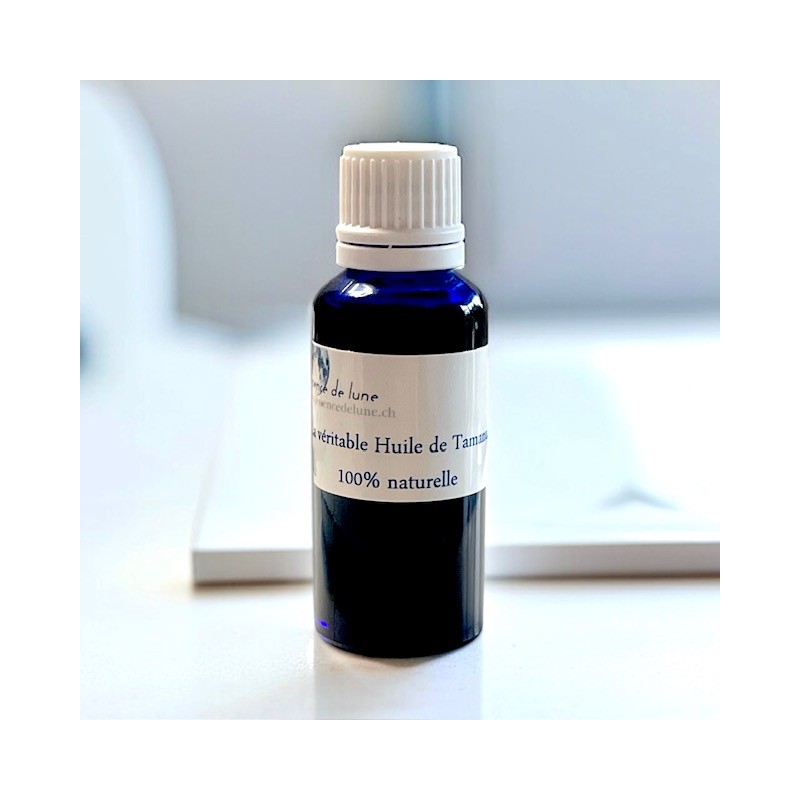


This healing oil, once known as "sacred oil", has been used for thousands of years in Polynesia. It was so named because the trees that produced the Tamanu nuts were planted in the "Marae", ancient sacred places of worship.
Our organic Tamanu oil is purchased locally where it is produced.
Benefits of Tamanu Oil:
1) Natural healing properties
Tamanu oil has the therapeutic property of promoting the formation of new tissue, which accelerates healing and the growth of healthy skin. Because of its healing virtues, tamanu oil is a natural remedy widely used in first aid.
In the Pacific islands, tamanu oil is generously applied to cuts, scratches, burns (boiling water, caustic and flaming gas), sunburns, insect bites, scrapes, acne pimples, acne scars, psoriasis, diabetic wounds, anal fissures, thrombosed hemorrhoids, dry or scaly skin, chapped skin, blisters, chilblains, psoriasis, eczema and herpes pimples.
Polynesian women massage tamanu oil locally into their babies' skin to promote beautiful, clear, spotless skin and prevent rashes such as diaper rash. Tamanu oil also has a soothing effect on irritated skin.
2) Natural anti-inflammatory
Tamanu oil has been shown to have an anti-inflammatory effect. This activity is due in part to the calophylollide 4-phenyl coumarin and a group of xanthones contained in the oil, and explains the reduction in the inflammatory reaction that generally accompanies all kinds of skin lesions: wounds, rashes, insect bites, acne pimples, etc. Applied locally, this oil is also traditionally used against sore throats.
3) Natural antifungal agent
Tamanu oil has antifungal properties. In fact, the friedeline molecule contained in tamanu oil has good antifungal activity against Pseudallescheria boydii (responsible for fungal keratitis) and moderate activity against Trichophyton schoenleinii (a skin fungus that parasitizes hair, skin and nails, associated with marginal eczema, ringworm, athlete's foot, dermatophytosis of the scalp and beard).
Tamanu oil contains n-butanol fractions with antifungal action against Trichophyton Semii and Trichophyton metagrophyte.
4) Antibacterial properties
Tamanu oil also has natural antimicrobial properties. The oil contains several powerful bactericidal agents effective in combating various human and animal pathogens.
These antimicrobial phytochemicals include friedeline, canophyllol, canophyllic acid and inophynone. They exert direct and indirect antibiotic effects by stimulating the phagocytic activity of cells of the reticuloendothelial system (macrophages).
Researchers have compared the antimicrobial activity of Tamanu oil with that of ampicillin. They found that canophyllol had good antimicrobial activity against Staphylococcus aureus (staphylococcus aureus), the bacterium that causes abscesses, boils, infected wounds, inflammation, suppuration, septicemia and conjunctivitis.
In addition, the canophyllol contained in Tamanu oil acts against Corynebacterium diphteriae (responsible for diphtheria), Klebsiella pneumoniae (responsible for septicemia, respiratory infections, infected wounds and burns).
Canophyllic acid has moderate activity against Proteus mirabilis, which causes bladder infections, wounds, septicemia and pneumonia, especially in hospitalized patients.
Researchers have concluded that the antimicrobial agents contained in Tamanu oil can be successfully used to treat a number of skin and eye infections.
5) Analgesic properties of tamanu oil
Rubbed or massaged in, Tamanu oil has analgesic properties and is used to relieve neuralgia, leprosy neuritis, shingles, rheumatism, painful joints, sprains, tendonitis, strains, lumbago and sciatica.